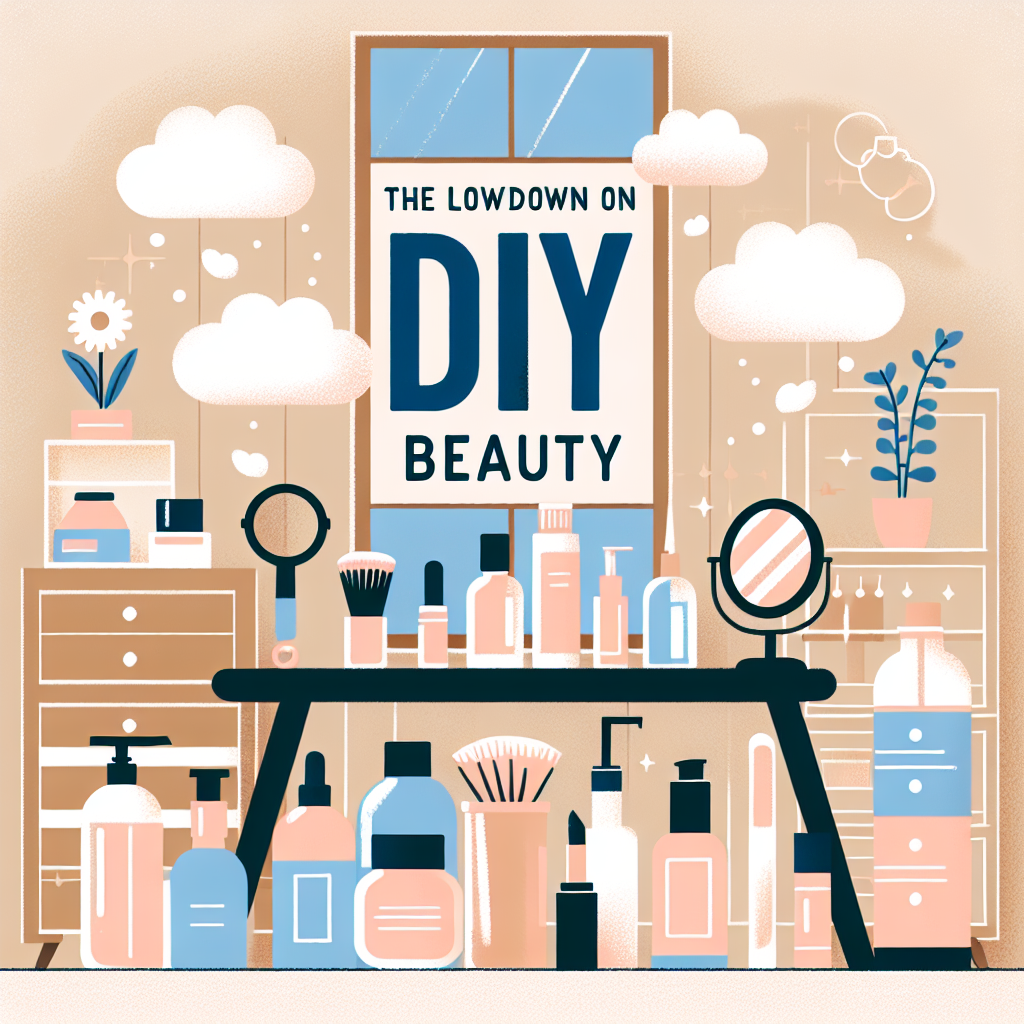Introduction to DIY Beauty
In recent years, the DIY beauty trend has taken the beauty industry by storm. With a plethora of videos, blogs, and social media posts guiding enthusiasts on how to create effective beauty products at home, many people are turning to kitchens rather than cosmetics counters. But what really works? To find out, we consulted experts in the fields of dermatology, cosmetology, and nutrition. Here’s the lowdown on DIY beauty from the professionals.
The Appeal of DIY Beauty
Many people are drawn to DIY beauty for reasons ranging from the desire to eliminate chemical ingredients to the satisfaction of creating something beneficial. According to Dr. Amelia Hart, a dermatologist, “There’s a certain charm in creating your remedies; it adds a personal touch and can often be more affordable than commercial products.” However, she also warns about the importance of understanding ingredients and their effects on the skin.
What Works? The Expert Picks
1. Natural Face Masks
Natural face masks using ingredients like honey, avocado, and yogurt are praised by many experts. Dr. Martha Kim, a skincare specialist, states, “Honey is an excellent humectant, and avocado is rich in vitamins and healthy fats, making them fantastic for moisturizing and nourishing the skin.” However, she suggests doing a patch test before applying any homemade mask to the entire face to avoid allergic reactions.
2. Sugar Scrubs
Homemade sugar scrubs are popular for exfoliation. “Using fine sugar with oil not only exfoliates but also hydrates the skin,” explains cosmetologist Sarah James. “Just be careful not to over-scrub, as it can irritate your skin.” She recommends using scrubs once or twice a week for best results.
3. DIY Hair Treatments
Hair masks made with coconut oil or olive oil have received accolades from hair care experts. “These oils penetrate the hair shaft and help with moisture retention,” says hairstylist Mark Jansen. “However, remember to wash out thoroughly to avoid greasy residue.”
The Risks of Going DIY
While there are benefits, experts caution against various DIY beauty practices. Dr. Hart warns about using acidic substances like lemon juice, which can increase photosensitivity and lead to sunburn. Additionally, homemade products may not always be sterile, posing a risk of infection. “Always ensure that the tools and containers you use are clean and properly sanitized,” she adds.
Conclusion: Making Informed Choices
DIY beauty can be an exciting and fulfilling avenue to explore one’s self-care regimen, but it’s essential to approach it with caution and knowledge. Consulting with professionals, doing research, and conducting patch tests can lead to safe and effective beauty practices. As the experts say, balance is key—enjoy the process but don’t overlook the importance of science and safety in your beauty routine.
Final Thoughts
With the right information and a bit of creativity, DIY beauty can provide unique solutions tailored just for you. Just remember to stay informed, prioritize safety, and embrace the experience of customization on your beauty journey!

